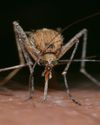
Despite the fact that we're all fully aware of the negative impact plastic water bottles have on our Mother Earth, we continue to consume them at the alarming rate of 480 billion per year. Discarded bottles can be seen polluting here and there on roads, buses, trains and at every place used by human beings. Approximately one billion of those plastic bottles pollute the oceans also. Plastic is cheap to make, which is why it's used for bottling drinks and other liquids, but that doesn't mean it's as good for the environment as it is for the manufacturer. Every plastic bottle takes a thousand years to break down, which leads to massive piles of waste that go nowhere fast. Manpower and machinery involved in recycling these discarded water bottles are playing their role but not with the pace with which this trash is being generated by human.
Efforts are also being made to minimize or restrict the use of the plastic bottles but without much fruitful outcomes. Need of drinking water at every time and every place is becoming an essential habit/requirement of present water-bubble human race. Hence, there is a great need to develop water carriers which are more handy and environmental friendly. In this direction, the biodegradable edible water pods created by Skipping Rocks Lab (London, Uk) in an attempt to make a more environmentally friendly alternative to single-serving plastic bottles.
Water carriers can come in different materials with all shapes and sizes, but to replace one of the most simple, ubiquitous water carriers on the planet - in this case, plastic bottles - it really has to be unbelievably brilliant to have any chance at success. In this direction, “Ooho” is an edible bottle created by Skipping Rocks Lab and is a product that's perfectly suited for internet hype.
この記事は Scientific India の September - October 2019 版に掲載されています。
7 日間の Magzter GOLD 無料トライアルを開始して、何千もの厳選されたプレミアム ストーリー、9,000 以上の雑誌や新聞にアクセスしてください。
すでに購読者です ? サインイン
この記事は Scientific India の September - October 2019 版に掲載されています。
7 日間の Magzter GOLD 無料トライアルを開始して、何千もの厳選されたプレミアム ストーリー、9,000 以上の雑誌や新聞にアクセスしてください。
すでに購読者です? サインイン

Building world's 1st pyramid
In a preprint study published this summer, researchers proposed that ancient Egyptians built the world's first pyramid the 4,700-year-old Step Pyramid of Djoser, which sits on Egypt's Saqqara plateau using a \"modern hydraulic system\" powered by a long-gone branch of the Nile River.

Climate change arms the world, ovarian cancer pulls the trigger.It's time we disarm them both
Climate change, driven by human activities, leads to environmental changes such as rising temperatures, altered weather patterns, and increased pollution.

Climate Change Added 18 mph to Hurricane Wind Speeds over Past 5 Years
High ocean temperatures caused by global warming boosted maximum intensities for most storms between 2019 and 2023, as well as for every 2024 hurricane.

How Indian Vulture Decline Led to 500,000 Deaths in 5 Years
Once a common sight across India, vultures were abundant scavengers, often seen circling landfills in search of carcasses.

Understanding Monkeypox: Insights and Implications
Monkeypox, a viral zoonotic disease, has gained significant attention in recent years due to its re-emergence and sporadic outbreaks globally.

AI predicts that most of the world will see temperatures rise to 3°C much faster than previously expected
Three leading climate scientists have combined insights from 10 global climate models and, with the help of artificial intelligence (AI), conclude that regional warming thresholds are likely to be reached faster than previously estimated.

Infrared Radiation: A New Player In Mosquito Host-Seeking
The sound of mosquitoes is all around us when the sun sets and the air gets warm and sweltering.

Fish Oil May Benefit to Cure Alzheimer's, disorder: new findings
The benefits of fish and fish oil consumption are well-known in medical science as fish is considered a precious food resource that provides sufficient nutrition to humans.

A new class of antivirals could help prevent future pandemics
The arrival of Paxlovid in December 2021 marked another turning point in the COVID-19 pandemic an effective antiviral that has since successfully treated millions.

Turning carbon emissions into methane fuel
Chemists have developed a novel way to capture and convert carbon dioxide into methane, suggesting that future gas emissions could be converted into an alternative fuel using electricity from renewable sources. Carbon dioxide (CO2) is a greenhouse gas that accounts for a large part of Earth's warming climate, and is produced by power plants, factories and various forms of transportation.